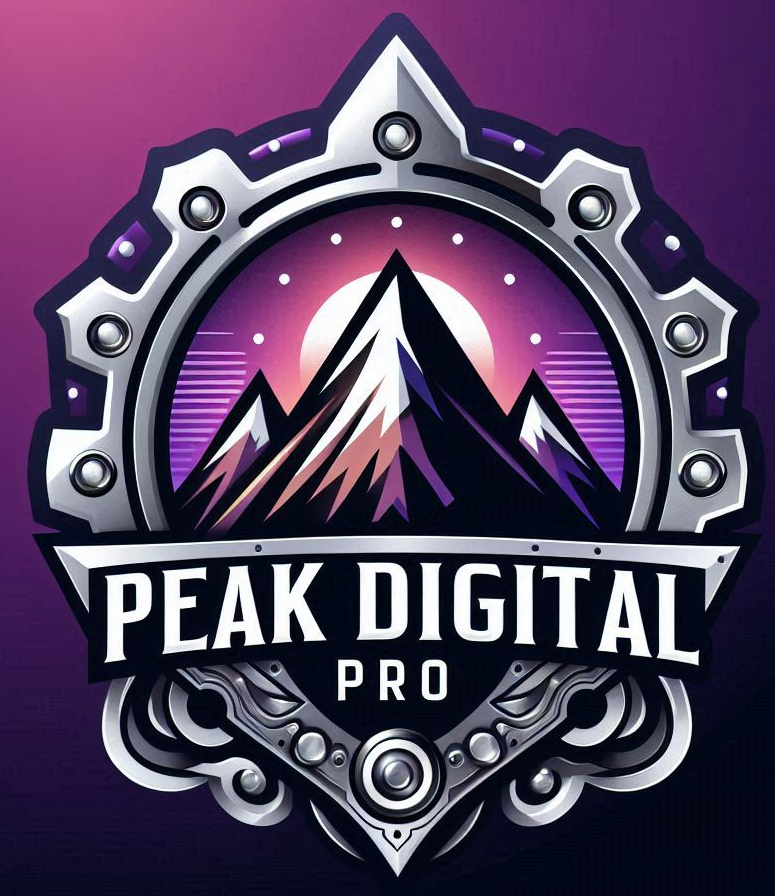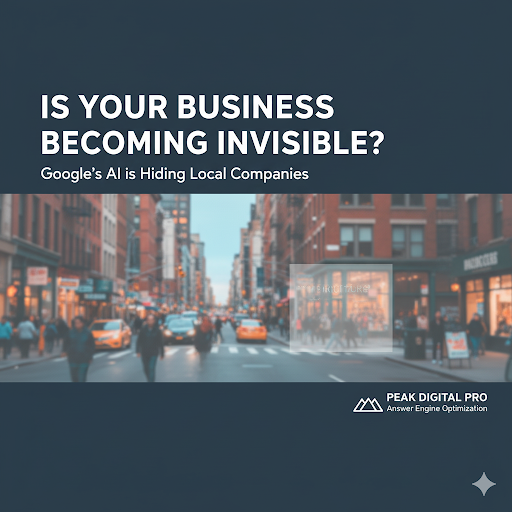Understanding Your Business Identity Online
Your business identity online is more powerful than ever. Every profile, review, and mention leaves a mark that shapes how people find and trust you. But get this. Over 95 percent of shoppers research businesses online and almost 90 percent refuse to deal with companies that have a bad digital reputation. Most think a clean website is enough. The real difference comes from everywhere your business shows up and how it all fits together. What matters now is not just how you look, but how the entire internet sees you.
Table of Contents
Quick Summary
| Takeaway | Explanation |
|---|---|
| Strong online identity is essential | A compelling online presence is crucial for business credibility and customer trust today. |
| Consistent digital signals build trust | Unified information across platforms enhances perceived expertise and reliability to potential customers. |
| Proactive reputation management is vital | Regularly monitoring and addressing feedback is critical to maintaining a positive online reputation. |
| High-quality content drives engagement | Authoritative and original content strengthens brand trust and draws in potential clients. |
| Security protocols are necessary | Robust cybersecurity measures protect business data and reinforce customer trust in your brand. |
What is Business Identity Online?
Your business identity online represents the comprehensive digital representation of your organization across various internet platforms and search environments. This digital footprint encompasses everything from your website and social media profiles to how your brand appears in search results, directories, and AI-powered search interfaces.
Digital Representation and Brand Signals
A business identity online is more than just a static website. It is a dynamic ecosystem of digital signals that communicate your brand’s credibility, expertise, and relevance. These signals include structured data like business listings, unstructured content like blog posts, user reviews, social media interactions, and technical metadata that search engines and AI systems use to understand and categorize your business.
According to research from the University of Massachusetts Amherst , digital identity for organizations represents a complex set of characteristics and representations that impact public perception and trust.
Key Components of Online Business Identity
Key elements that construct a robust online business identity include:
- Website Content : Comprehensive, authoritative information about your services
- Technical SEO Infrastructure : Proper schema markup and metadata
- Business Listings : Consistent information across Google Business Profile and industry directories
- Social Media Presence : Active and professional representation
- User-Generated Content : Reviews, testimonials, and third-party mentions
Understanding and strategically managing these digital touchpoints ensures your business remains visible, credible, and competitive in an increasingly AI-driven search landscape.
To help clarify the essential building blocks of business identity online, the following table summarizes the key components and their primary functions.
| Component | Primary Function |
|---|---|
| Website Content | Provides authoritative, comprehensive information about services and expertise |
| Technical SEO Infrastructure | Enhances discoverability via schema markup and accurate metadata |
| Business Listings | Ensures consistent contact details and presence across directories |
| Social Media Presence | Demonstrates engagement and professionalism across platforms |
| User-Generated Content | Builds credibility and trust through reviews and third-party mentions |

Why Business Identity Matters for Brands
In the digital age, a robust online business identity is no longer optional but a critical strategic asset. Your digital presence determines how potential customers perceive, discover, and interact with your brand across multiple platforms and search environments.
Consumer Trust and Brand Perception
Business identity directly influences consumer confidence and decision making. When potential customers search for services, they quickly evaluate a brand’s credibility through its online representation. A consistent, professional digital identity signals reliability, expertise, and authenticity. Businesses with fragmented or incomplete online profiles risk losing potential customers who seek immediate, trustworthy information.
As research in SAGE Open demonstrates, brands that successfully cultivate a strong online identity positively impact customer engagement, satisfaction, and recommendation likelihood.
Competitive Visibility in AI Search Environments
With the rise of AI-powered search results, a strategic online business identity becomes even more crucial. Search algorithms and AI systems now evaluate businesses based on complex signals that extend beyond traditional SEO. Your digital identity determines whether you appear as a trusted answer in AI-generated search results.
Key strategic advantages of a strong online business identity include:
- Algorithmic Preference : Higher likelihood of being selected by AI search systems
- Brand Authority : Establishing expertise and credibility in your industry
- Consumer Discovery : Increasing chances of being found by potential customers
- Competitive Differentiation : Standing out in crowded digital marketplaces
Businesses that proactively manage their online identity position themselves for sustainable growth in an increasingly digital and AI-driven marketplace.
Key Components of a Strong Online Identity
Building a robust online identity requires strategic integration of multiple digital elements that collectively communicate your brand’s unique value proposition and credibility. These components work synergistically to create a comprehensive digital representation that resonates with potential customers and search algorithms.
Technical Infrastructure and User Experience
The foundational layer of a strong online identity involves technical infrastructure that ensures seamless user interaction and search engine optimization. This includes responsive web design, fast loading speeds, mobile compatibility, clear navigation structures, and secure hosting environments. Accessibility and performance are critical signals that communicate professionalism and reliability.
According to Harvard Medical School’s Identity Guide , implementing standard navigation placement and using descriptive yet concise labels significantly enhances user experience and reinforces brand identity.
Content and Credibility Signals
Content serves as the primary mechanism for establishing expertise and building trust. High-quality, original content that addresses user needs demonstrates thought leadership and provides tangible value. This includes:
- Authoritative Blog Posts : Detailed insights into industry trends
- Case Studies : Demonstrating real-world problem solving
- Multimedia Resources : Videos, infographics, and interactive content
- Expert Perspectives : Thought leadership articles
Learn more about increasing online visibility for businesses through strategic digital positioning.
Security and Trust Verification
Modern online identities must prioritize digital security and trust verification. This involves implementing robust security protocols, displaying trust badges, maintaining updated privacy policies, and providing transparent contact information. Verification signals like secure HTTPS connections, professional contact information, and clear business credentials reassure potential customers about your legitimacy and commitment to protecting their interests.
How Online Reputation Shapes Your Business Identity
Online reputation is the digital manifestation of your brand’s perceived value, trustworthiness, and professional credibility. In an era where consumers extensively research businesses before engaging, your digital reputation serves as a critical determinant of business success and customer acquisition.
Customer Perception and Trust Dynamics
Customers today make purchasing decisions based on comprehensive digital insights. Online reviews, social media interactions, and third-party mentions collectively construct a narrative about your business that extends far beyond traditional marketing channels. Potential clients rapidly form judgments about your reliability, expertise, and service quality through these digital touchpoints.
According to the Better Business Bureau , over 95% of shoppers research businesses online, with 90% avoiding those with a negative reputation and 95% trusting companies with positive digital representations.
Reputation Management Strategies
Effective online reputation management requires proactive and strategic approaches. Key strategies include:
- Consistent Monitoring : Regular tracking of online mentions and reviews
- Prompt Response Management : Addressing negative feedback constructively
- Authentic Content Creation : Developing transparent, value-driven digital narratives
- Strategic Review Generation : Encouraging satisfied customers to share experiences
Search Engine and AI Reputation Signals
Modern search algorithms and AI systems now incorporate reputation signals into their ranking mechanisms. Your online reputation directly influences visibility in search results, affecting not just consumer perception but also digital discoverability. Businesses with strong, positive digital reputations are more likely to be recommended by AI search systems and appear in prominent search positions.
A robust online reputation is no longer optional—it is a fundamental component of digital business success.

Navigating Challenges in the Digital Business Landscape
The digital business landscape presents complex challenges that require strategic navigation and proactive management. As technology evolves rapidly, businesses must continuously adapt their online strategies to maintain competitive advantage and protect their digital reputation.
Cybersecurity and Digital Trust
Digital vulnerability represents a significant challenge for modern businesses. Cyber threats continue to grow in sophistication, targeting small and medium enterprises with increasing precision. Protecting sensitive business and customer data requires comprehensive security strategies that go beyond traditional firewall protections.
According to the U.S. Small Business Administration , businesses must implement robust cybersecurity practices to safeguard their digital infrastructure and maintain customer trust.
Technological Disruption and Adaptation
Rapid technological changes demand constant learning and strategic pivoting. Key challenges businesses face include:
- AI Integration : Understanding and leveraging artificial intelligence technologies
- Data Privacy Regulations : Complying with evolving digital privacy standards
- Platform Diversity : Managing presence across multiple digital platforms
- Algorithmic Changes : Adapting to frequent search and social media algorithm updates
Maintaining Competitive Digital Visibility
As AI-driven search environments become more complex, businesses must develop sophisticated strategies to remain visible and relevant. This involves creating high-quality, authoritative content that resonates with both human audiences and algorithmic assessment systems. Adaptive digital strategies are crucial for businesses seeking to maintain their competitive edge in an increasingly AI-mediated digital marketplace.
Successful navigation of these challenges requires continuous learning, technological agility, and a proactive approach to digital identity management.
This table highlights the top cybersecurity and technological challenges faced by businesses in the digital landscape, along with what each challenge entails.
| Challenge | Description |
|---|---|
| Cybersecurity and Digital Trust | Need for robust protocols to protect against sophisticated cyber threats |
| AI Integration | Adapting to and leveraging new artificial intelligence technologies |
| Data Privacy Regulations | Staying compliant with evolving digital privacy and data protection standards |
| Platform Diversity | Managing brand identity across multiple, rapidly changing digital platforms |
| Algorithmic Changes | Adjusting strategies in response to frequent updates by search and social platforms |
Protect and Elevate Your Business Identity in the Age of AI Search
In a world where your business identity online shapes customer trust and determines your visibility in AI-driven search results, letting your digital reputation slip means falling behind. As discussed in this article, maintaining a strong online presence now requires more than just a website. Your business must demonstrate credibility, expertise, and real authority across every digital touchpoint. If you are feeling the impact of lost traffic or concerned about your brand slipping out of crucial AI results, you are not alone. Smart organizations are acting now to future-proof their place in the market.

Partner with Peak Digital Pro to secure your brand as a trusted authority where it matters most. Our team specializes in Answer Engine Optimization and Generative Engine Optimization for high-value industries. We use advanced solutions like increasing your online visibility and protecting your digital reputation for the AI era. Take the next step to become the go-to answer for your customers. Visit our website now to begin your journey to unshakable digital authority—before your competitors do.
Frequently Asked Questions
What is a business identity online?
A business identity online refers to the comprehensive digital representation of your organization across various internet platforms. This includes your website, social media profiles, search results, and online directories.
Why is a strong online business identity important?
A strong online business identity builds consumer trust and influences brand perception. It helps potential customers find reliable information about your brand and increases engagement across digital platforms.
How can I improve my online business identity?
To improve your online identity, focus on creating high-quality website content, maintaining active social media profiles, ensuring consistent business listings, and engaging with user-generated content like reviews and testimonials.
What role does online reputation play in business identity?
Online reputation significantly impacts how customers perceive your brand. Positive reviews and social media interactions contribute to a trustworthy digital identity, while negative feedback can harm your credibility and customer acquisition efforts.
Recommended
- Increasing Online Visibility: Proven Strategies for US and Colorado Businesses in 2025
- Web Design | Peak Digital Pro | Rocky Mountain Region
- Terms of Service | Peak Digital Pro | CO
- Understanding Website Visibility Techniques for Success







